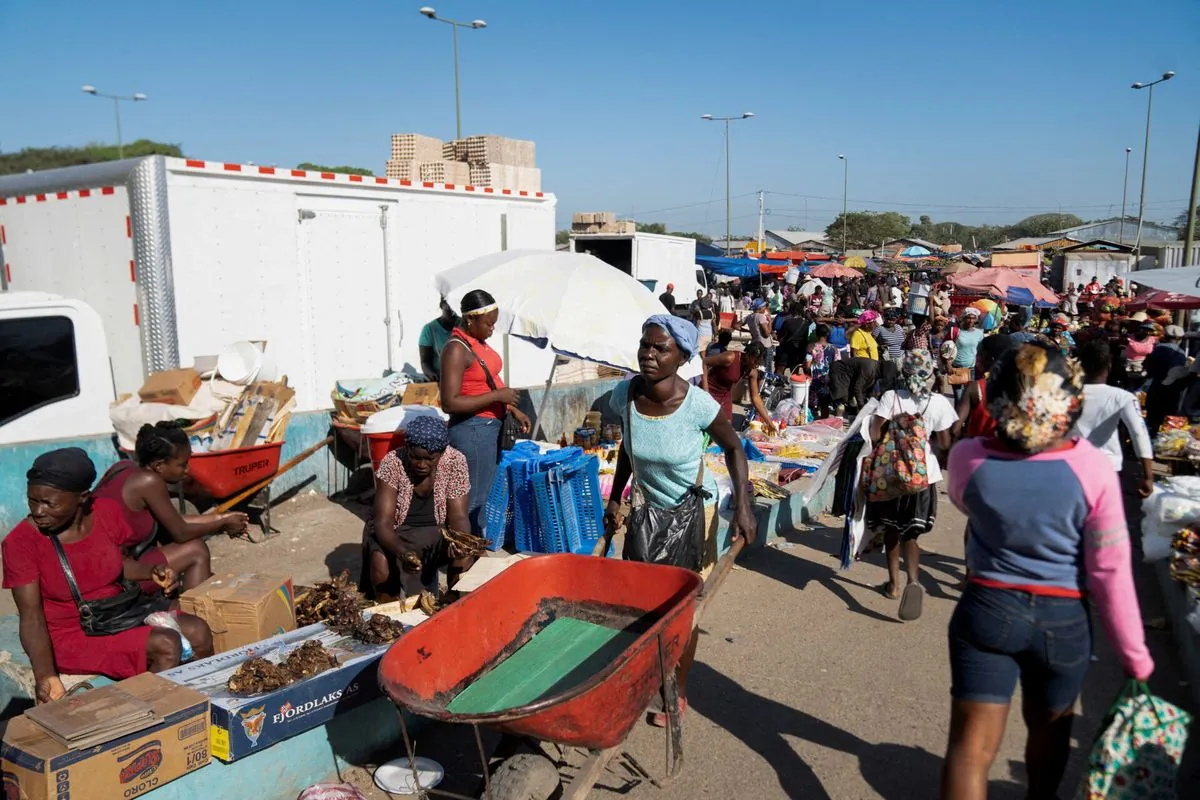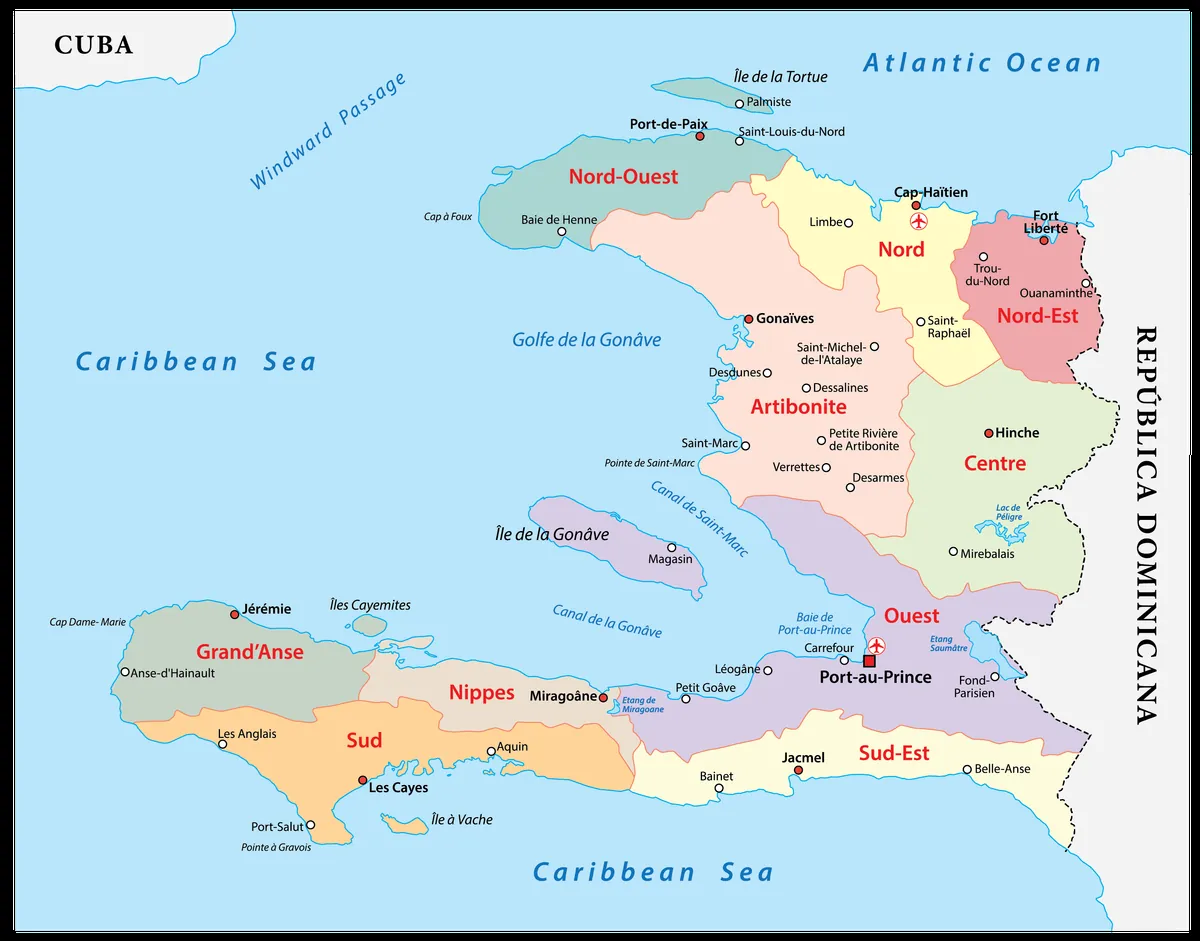Deadly Gang Attack in Haiti's Artibonite Region Claims Over 50 Lives
A brutal assault by the Gran Grif gang on Port-Sondé, Haiti, has resulted in more than 50 deaths. The government has deployed an elite police unit and sent medical supplies to the overwhelmed local hospital.

In a devastating incident that has shocked Haiti, the death toll from a recent gang attack in the Artibonite region has surpassed 50 victims. The assault, which occurred on October 3, 2024, targeted the small town of Port-Sondé, leaving a trail of destruction and grief in its wake.
The Gran Grif gang, notorious for its brutality, is believed to be responsible for this atrocity. This criminal organization, operating in the Artibonite region, has been a source of terror for local communities for nearly a decade. The gang's origins can be traced back to around 2014-2015 when a former Haitian legislator began arming young men to secure political control over the area.

The Artibonite region, known as Haiti's breadbasket, has been increasingly affected by gang violence in recent years. This surge in criminal activity has had severe consequences for food production and healthcare in a country already grappling with numerous challenges. Haiti, the poorest nation in the Western Hemisphere, has a population of approximately 11.4 million people, with about 60% living below the poverty line.
In response to this latest attack, the Haitian government has taken action by deploying an elite police unit from Port-au-Prince to Port-Sondé. Additionally, medical supplies have been sent to support the local hospital, which has been overwhelmed by the influx of injured individuals.
"This heinous crime, perpetrated against defenseless women, men, and children, is not only an attack on these victims, but on the entire Haitian nation."
The impact of gang violence extends beyond immediate casualties. In February 2023, violence forced the closure of a hospital serving over 700,000 people in the region. This situation exacerbates Haiti's already high maternal mortality rate and contributes to the country's struggles with food insecurity and poverty.
Haiti's history is marked by political instability and natural disasters, including a devastating earthquake in 2010 that claimed over 200,000 lives. The country has also faced challenges such as cholera outbreaks since 2010 and significant deforestation leading to environmental issues.
Despite these hardships, Haiti boasts a rich cultural heritage, including vibrant art and music scenes. The country, which shares the island of Hispaniola with the Dominican Republic, gained independence from France in 1804, becoming the first independent black republic.
As Haiti continues to grapple with this latest tragedy, the international community watches closely, hoping for a resolution to the ongoing violence that has plagued this Caribbean nation for far too long.


































